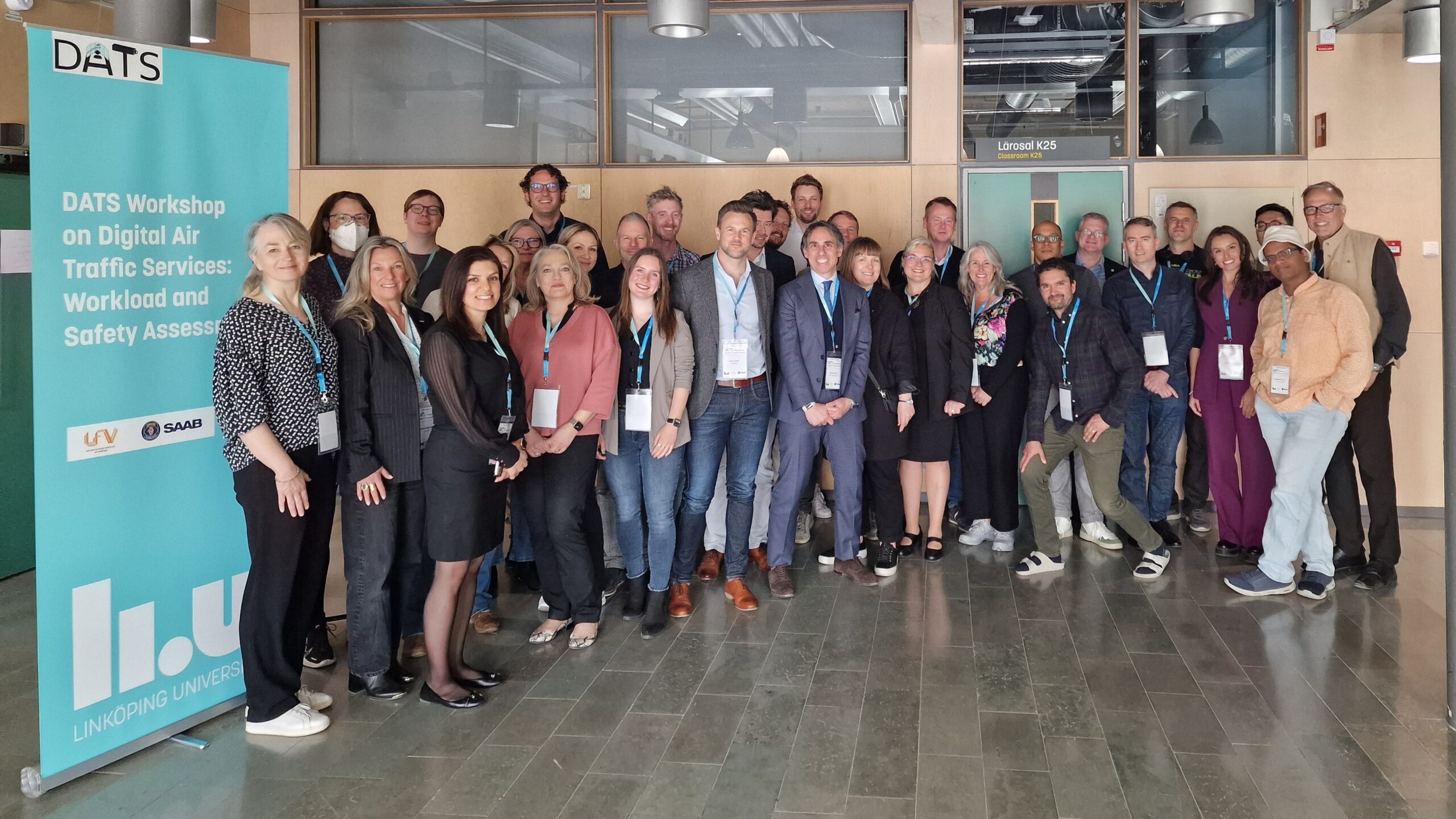The IFAV3 project (Increased Flexibility of ATCO Validation) aims to enable more flexible deployment of ATCOs to sectors by using different strategies, procedural means and technical enablers. From 8 to 9 May 2025, at the ‘DATS Workshop on Digital Air Traffic Services: Workload and Safety Assessment‘ in Norrköping, the initial outcomes of the NLR – Netherlands Aerospace Centre – Linköping University – LFV validation exercise on Smart Sector Grouping, which took place in Sweden, were successfully presented.
Smart Sector Grouping (SSG) first considerations
The validation workshop, the results of which were presented at the DATS event, was organised with operational personnel from LFV, the Swedish air traffic service provider (ATSP), to discuss the results as well as the feasibility of the developed tool within the Smart Sector Grouping solution.
Operational experts from both units (Stockholm and Malmö) were first presented with the #IFAV concept, the tool, and the possible scenarios that were considered in the tool.
Participants were guided through the various discussion topics, such as:
- General use of the tool
- Preferences for the different scenarios
- Rostering and operational feasibility
- Usefulness of the information of the tool
- Potential safety and human performance impact
Participants were also asked to fill in questionnaires regarding the discussion topics throughout the session. While a lot of qualitative information was gathered, main findings are that participants believe SSG can improve efficiency and that it can support future unit endorsement grouping. They also emphasise the importance of considering traffic flow and reducing the number of switches when making the sectors and sectorisation pathways over the course of a shift, as it would make the solution more operationally attainable. Hence, the “feasible” scenario, which includes traffic flow to determine sector combinations (41% of participants) was the preferred scenario. Regardless, participants scored the solution relatively low on feasibility, with a 6.4 out of 10, although they rated the solution and the IFAV concept in general more favourably at the end compared to the start of the validation workshop. The participants also rated the potential impact on safety and human performance as minor, with only some indirect impact foreseen, if any.
Finally, in Malmö there are already some overlapping controllers, which may inspire the next step within the SSG solution, which concerns the possibility of integrating rosters of the Stockholm and Malmö units with IFAV controllers in the bordering sectors during low complexity situations.

